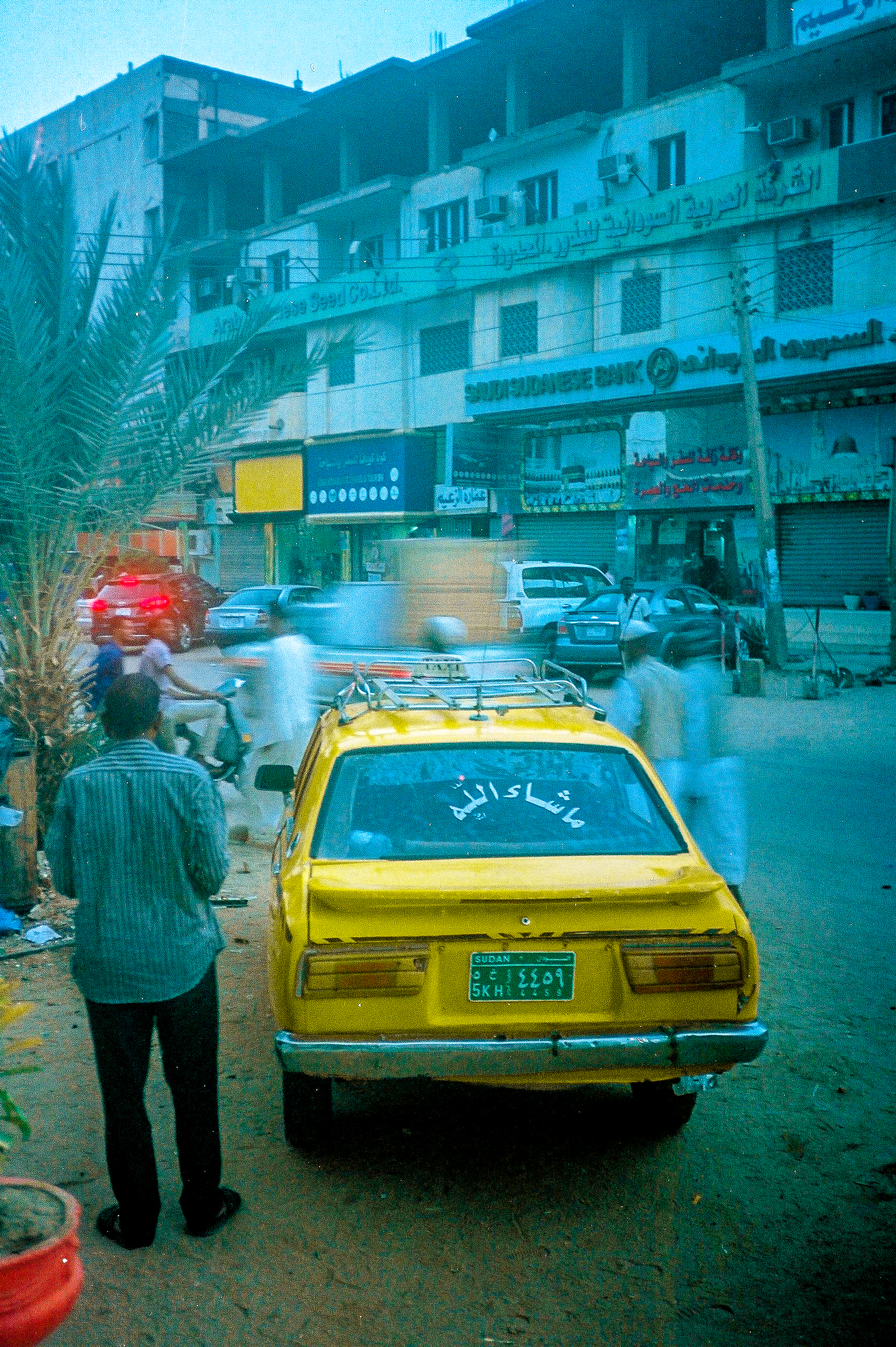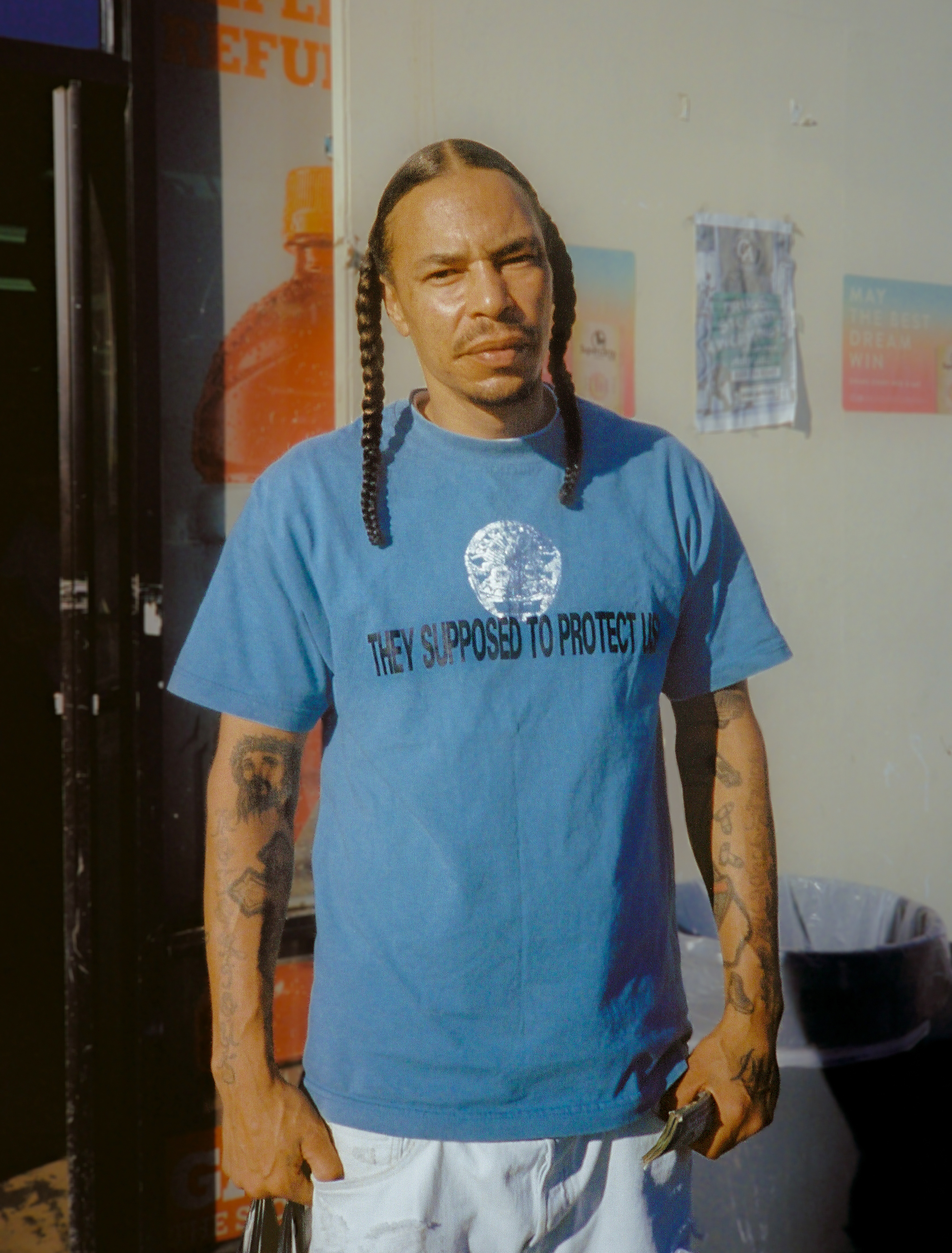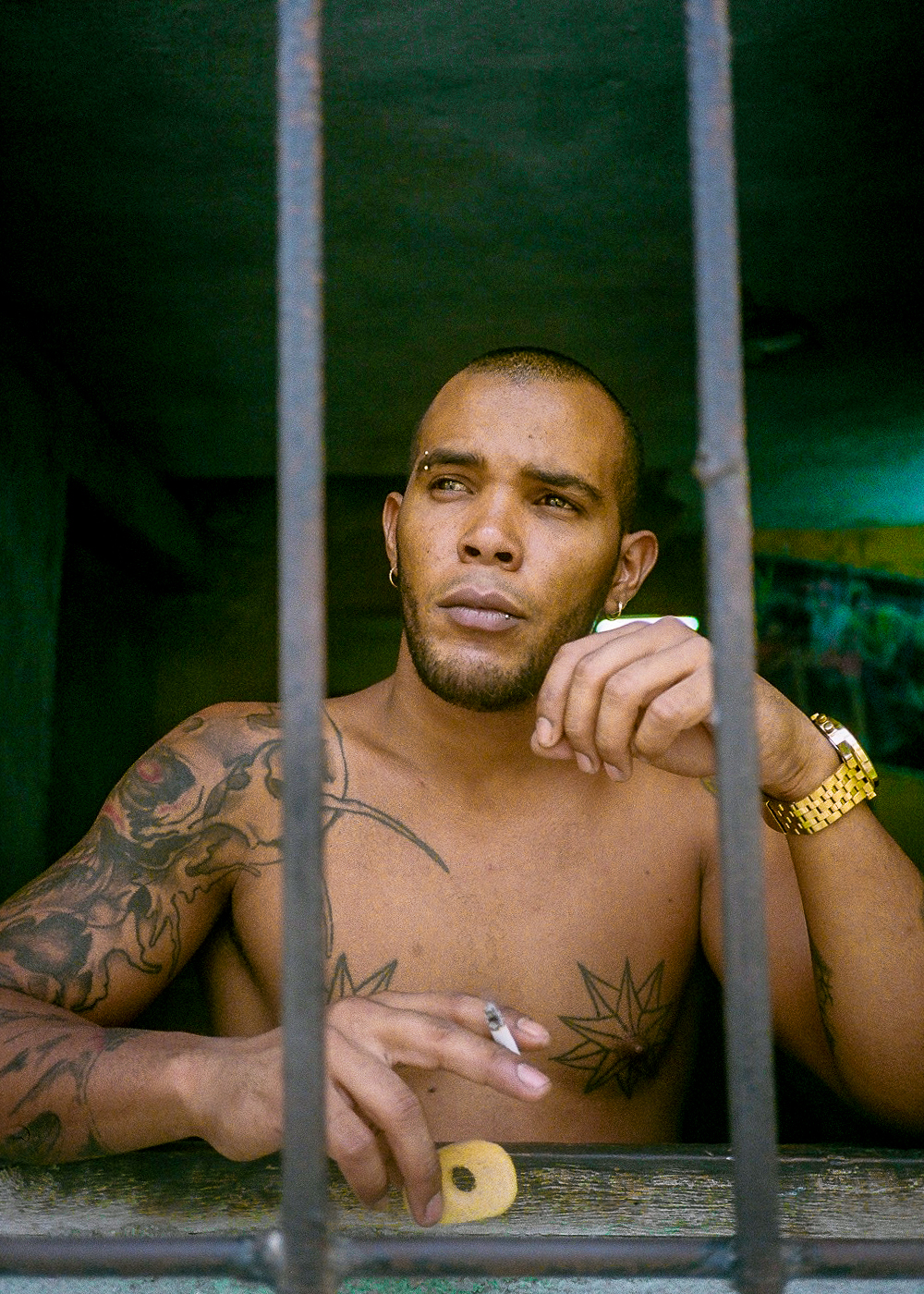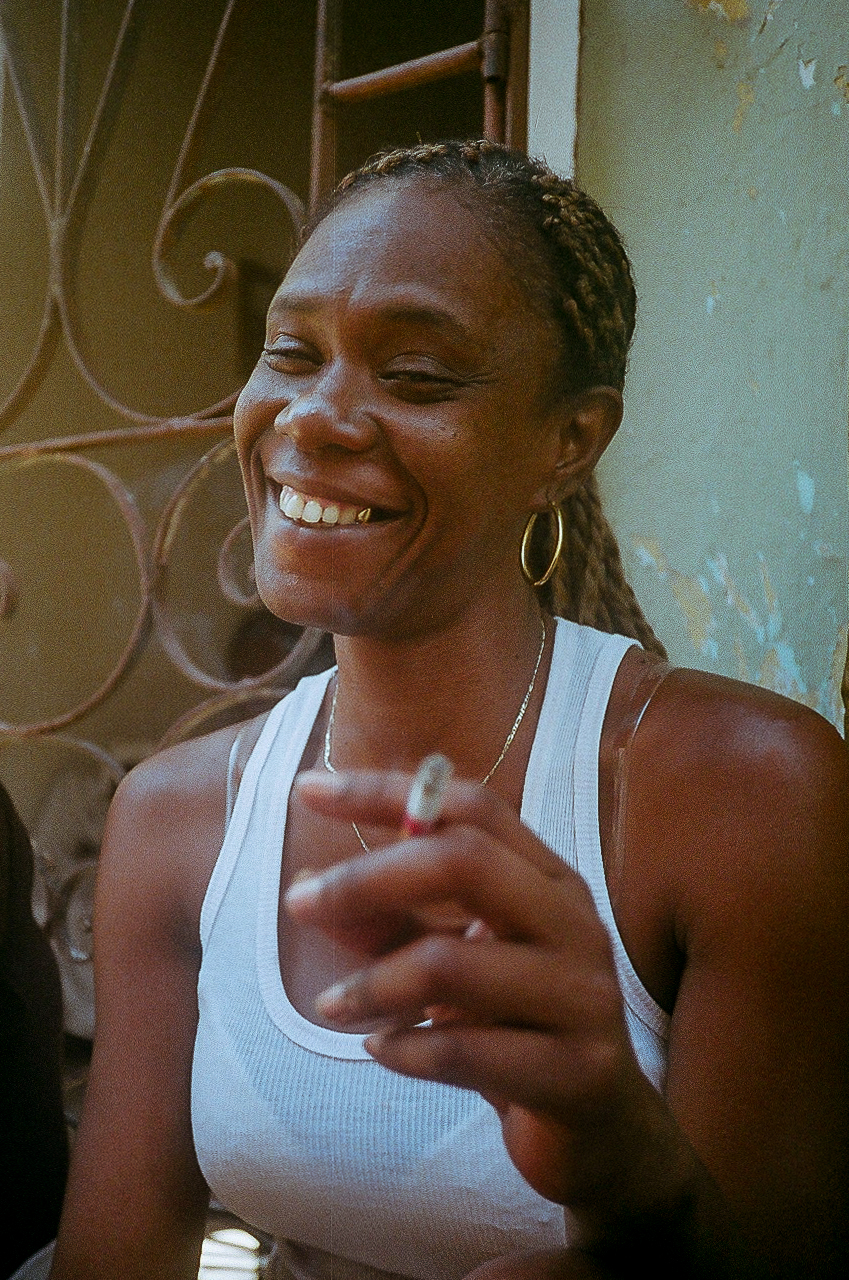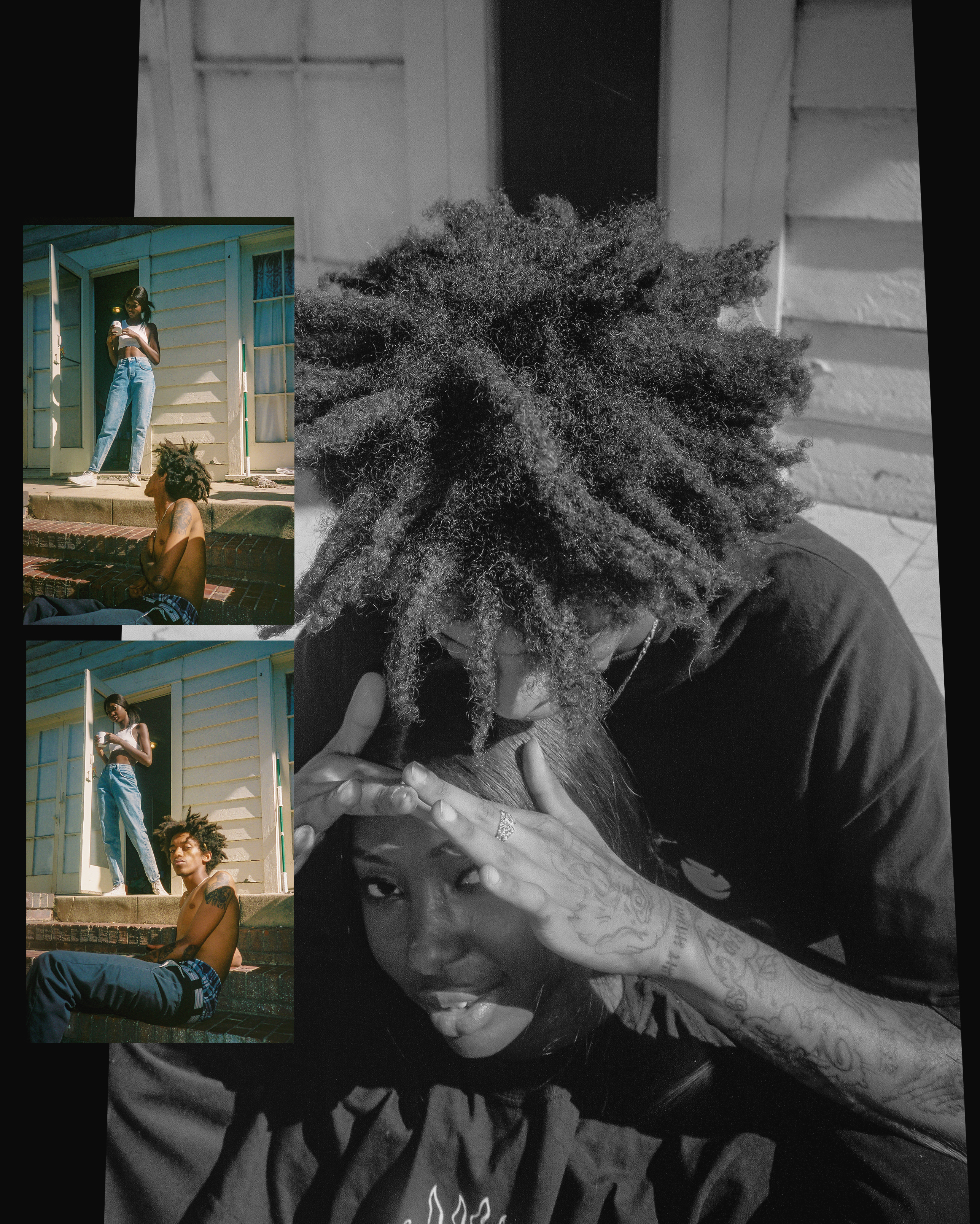︎ INTERVIEW: SABB ADAMS
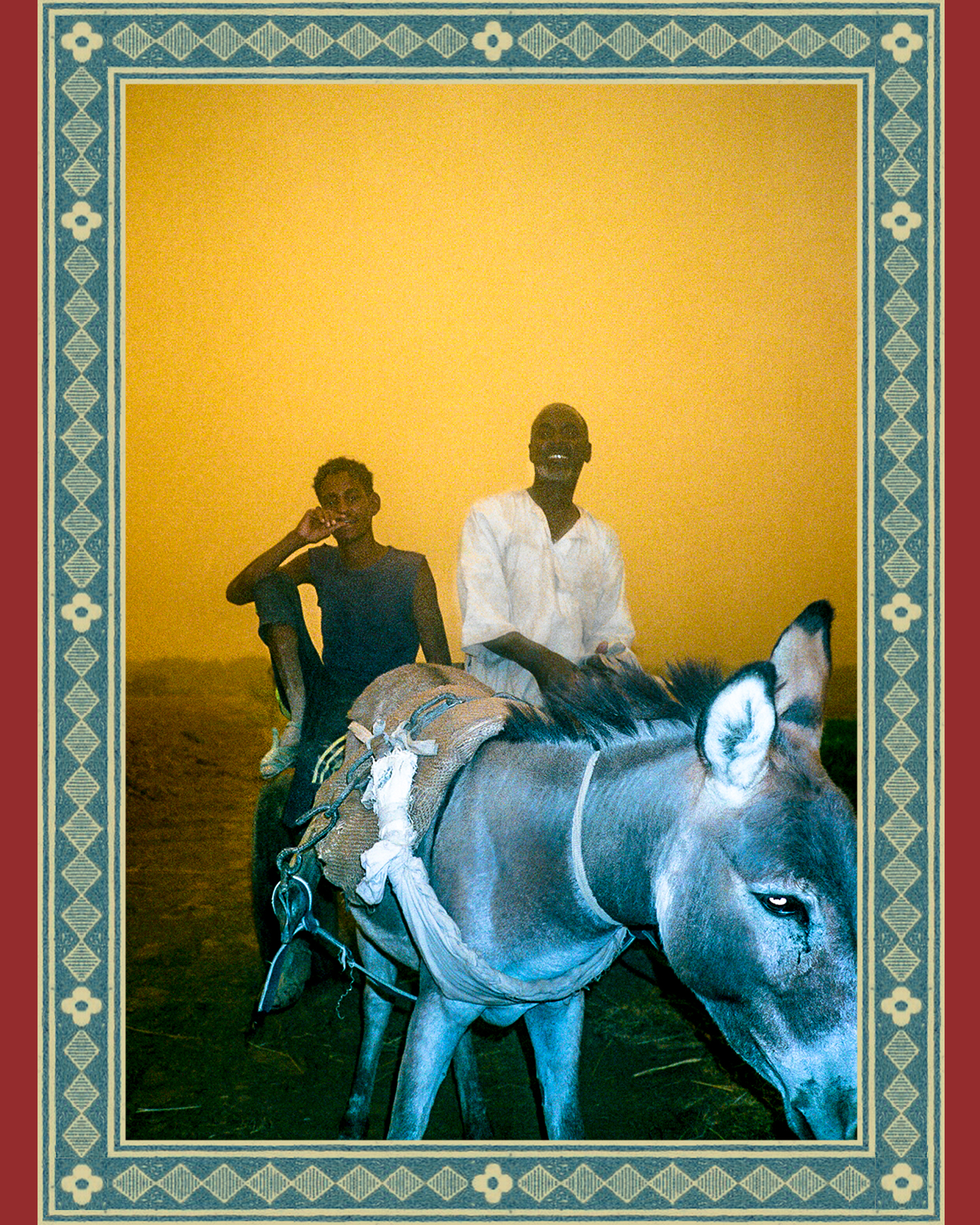
As the London sky glooms dark, elusive photographer and filmmaker SABB ADAMS ends his week with a cup of coffee and a chat with Cortex, on a late Friday afternoon. Adams reveals his intriguing life and travel stories, alongside the origins of his love for visuals arts. The photographer also provides some key advice for up and coming creatives.
Who are you?
I'm 60% water and 40% thoughts. I'm in human form. I don't know, I like to photograph. I like to travel. I'm giving generic answers right now but I want to say something cool. I'm a thinker.
Tell me about your life story.
I'm from Nottingham, raised there. It made me into the man I am today, that's me, Nottingham boy.
Tell me about your work.
I work mainly on personal projects. I do get client work a lot as well. But I'd like to build my own portfolio, build my own projects, build my own work archive. I just mainly want to travel, document the world. I want to show the unseen, so people are aware of what kind of things go on outside of the box they're stuck in. I feel like a lot of people are stuck in this box. People think it's just their room and the internet. But there's a lot more than what's just in their room and what they're seeing on the internet. People should go out and explore. And photography inspired me to travel, so I just want my photography to inspire others to travel too. I'm also a filmmaker. So I did filmmaking in university and then I transferred into a course which was Contemporary Media & Practice. I want to specialise in film for that as well. So, by origin I got into photography through filmmaking. So, I'm a filmmaker first and a photographer second. Even when I take photos, I'll look at it in a cinematic perspective. I do love portraits but I love shots that tell a story as opposed to just shots that are of anything. My filmmaking skills are incorporated into my photography.

So would you say you're more into photography or filmmaking?
I just wish our eyes were a camera. I mean they are because without your eyes you wouldn't be able to photograph anything. So it's what you see that you photograph. But I just wish I was able to snap with my eyes because there were so many moments I miss out on because I didn't have my camera ready. Our eyes are the camera. Some people think the camera is the camera. But we need to believe that it's us that take the photo as opposed to the camera.
But when you come up with a project, are you going to up with a photography perspective or a filmmaking one?
It depends. So I'm slowly working on a documentary on low riding, the cars that ride up and down, like in LA. So I'm working on an ongoing project on low riding, exploring the themes and the purposes, the meanings and the cultural background of it in different parts of the world, in America and in the UK for example. But I know there is some low riders in the Arab region, in the Middle East. I follow a few Middle Eastern guys, who have low riders in Kuwait specifically. It's not a thing that I have a deadline with, it's just what I'm going with the flow. So if I find myself in Kuwait one day, I'll hit up the guy and I'll shoot stuff. I don't know when I want to put it out, but I am working on a low riding documentary. I've shot some stuff, that's all I'll say.
And when I went to America, I hate this. So I went America to see it. And when I was there, I was in the middle of all of the low riders and I broke my video camera. I had a super eight camera and the day before I went, it dropped on the lens and the lens broke. So yeah, things happen. So I'll have to go LA again and shoot. But I've got some cool photos and it got me in touch with a lot of people as well. Now I understand where to find them. So next time, I'll get better stuff that I would have than this time.
Can you describe your relationship with photography. Do you remember a particular anecdote where you discovered this love for the medium?
My father always took photos of me and my brother. I just remember my Dad always taking photos. I just remember photos always being around. So I knew like photography is a thing, I was aware of it. Rather than it just being someone taking memories, I knew photography as a crucial part of life because it holds memories. So I always knew I wanted to take photos but I never wanted to take photos for a living. Anyone who knows me long enough, knows I used to be a graphic designer. I started through graphic design and that was like in the school days. I used to make typographic arts in powerpoint, mess with fonts, manipulate the way it looks and the shapes. Then, through that I go into a course in college. And through there, I managed to explore photography and filmmaking and then at university I went through filmmaking. But it all initially started from graphic design.
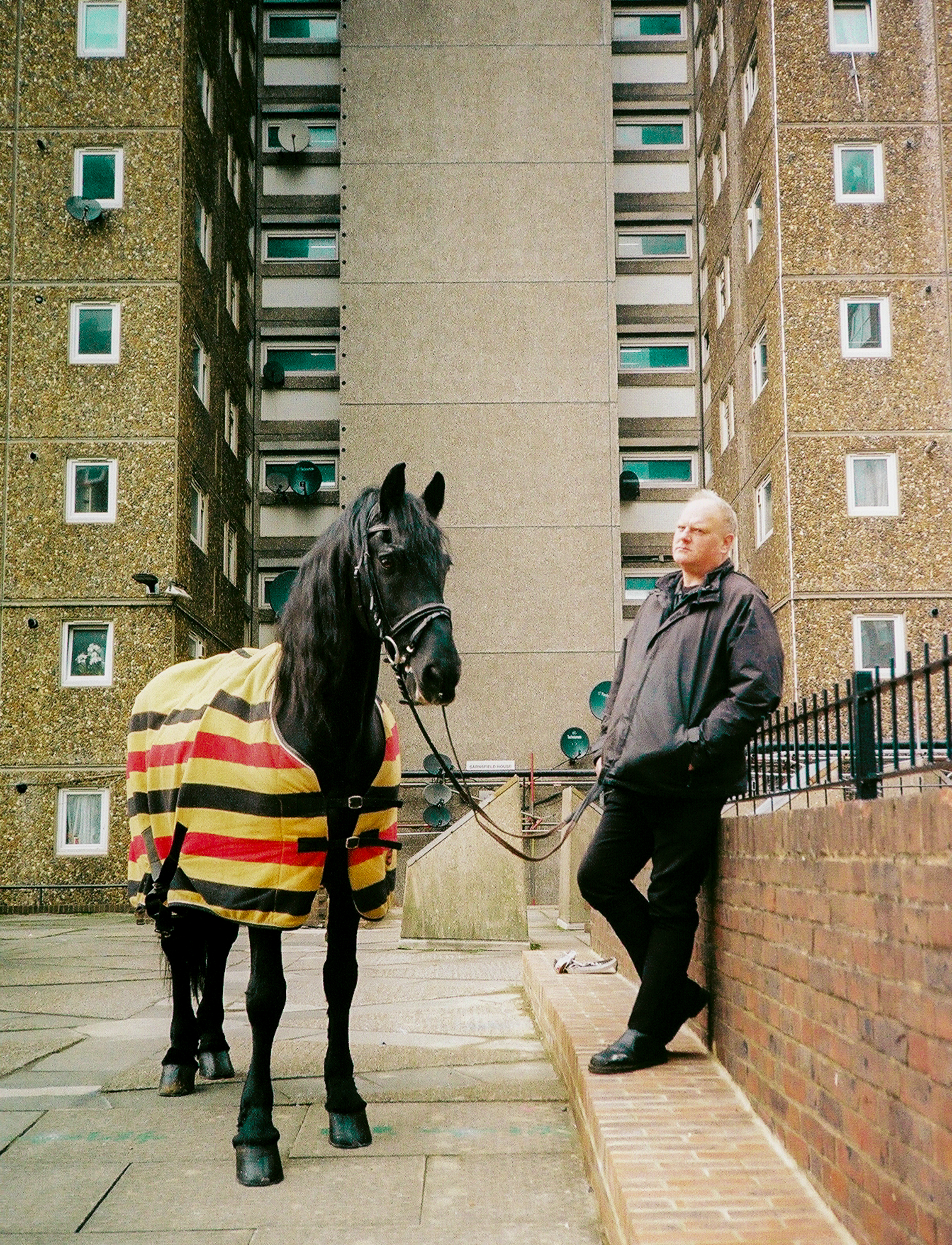

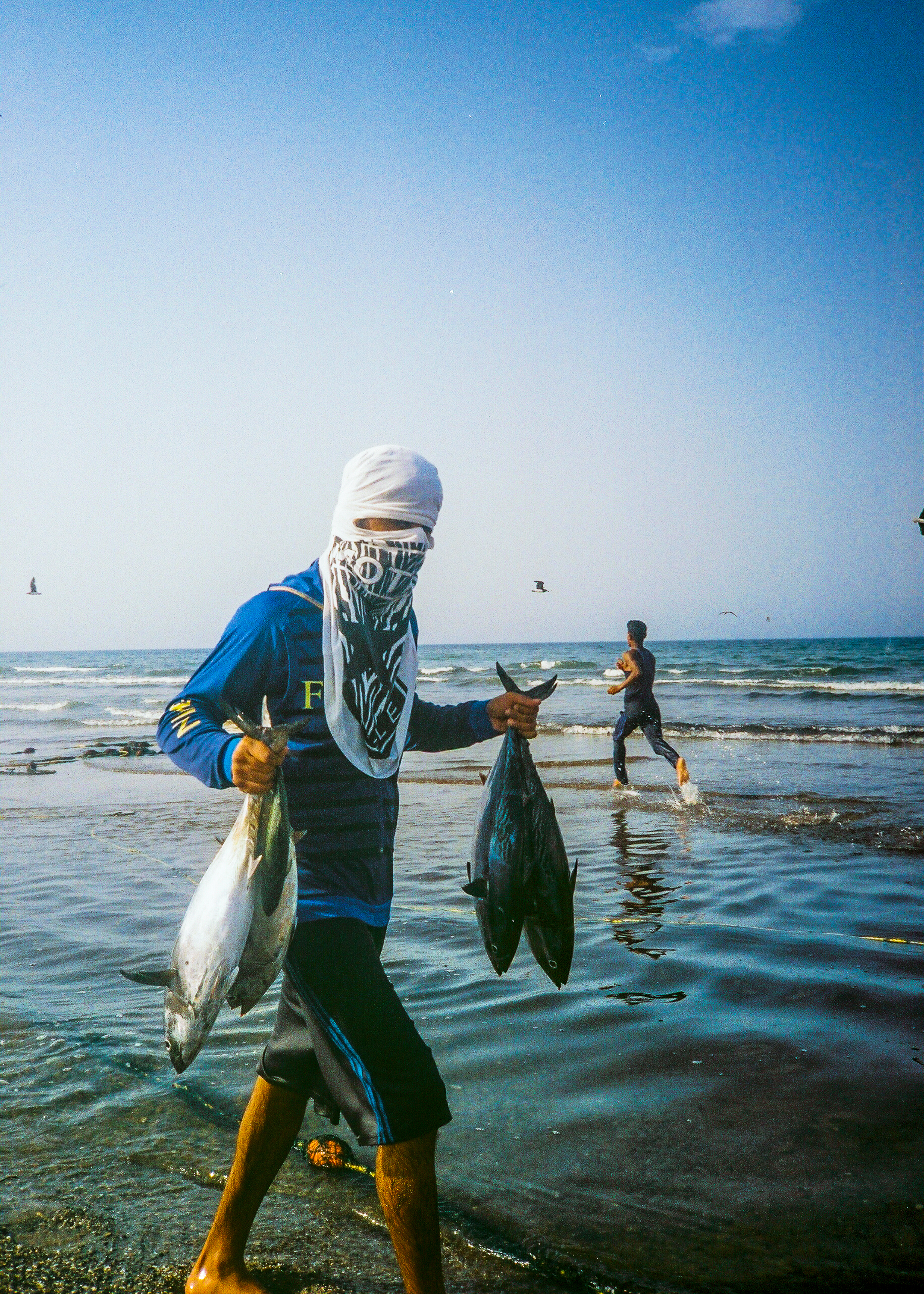
So how did you go from graphic design to filmmaking?
I went to Saudi Arabia with my parents and I wanted to shoot some memories as opposed to photos and videos. I just collected a lot of footage. This was like when I was 16. I just held a lot of footage from Saudi Arabia, like crazy stuff like, cars drifting, kanafeh being cooked and just random stuff. I didn't know if I was going to use it for anything. But I ended up using it for a project, for college. That sparked my interest for filmmaking which is why I went from graphic design to filmmaking. It's more of a process as graphic design is also a process, but you sit down and create. But with filmmaking, it can transfer from being one thing to another. When graphic design is basically you, the laptop and your eyes glued. It's exhausting and draining.
Why film photography specifically?
I started with digital. Photography is a chemical process. I do like the way film captures an image as opposed to digital, the look, the feel, of course that goes without saying. A backup is never a backup. You can backup your photos but that backup can also get lost. When you have film, a physical form, you know that's with you forever because you can scan it at anytime. The photos are there. And I do like the aspect of having a film image in your possession. Whenever and wherever you go, you can take your films with you and your photos will never get old or you never have to like try and recover them through whatever software and trying to recover deleted files. And I went through the process of trying to recover files and it just hurts not being able to get them back. So film started like that.
But also, everything starts with curiosity. So I just wanted to buy a film camera and see what it's like and then once you start, the ball rolls. And then also I started being hired more for my film work as opposed to digital. So it made me trust my own eye as well. It makes you a better photographer, I'd say as well, because obviously you're looking at what you're taking photograph through the viewfinder, but you're not reviewing it until you get the photos back. So it makes you a better photographer in the sense of making sure every shot you get, is worth the shot. You also learn the camera more. With digital photography, sometimes you let the camera do its job where with manual photography or manual film photography, you have to control the camera, to get what you want out of it. I will say this to people: control the camera, don't let the camera control you.
What was your favourite place to visit and capture?
Each place holds a special spot in my heart, especially for the memories, the people I've met, the food I've tasted and the places I've been. Every place has its own thing that resonates with me. But if I had to pick one, it would definitely be Cuba because it was the first place I went to alone. It taught me a lot about myself. And I've created the book out of it, so it's like something that's in physical form to me now. It sticks with me.
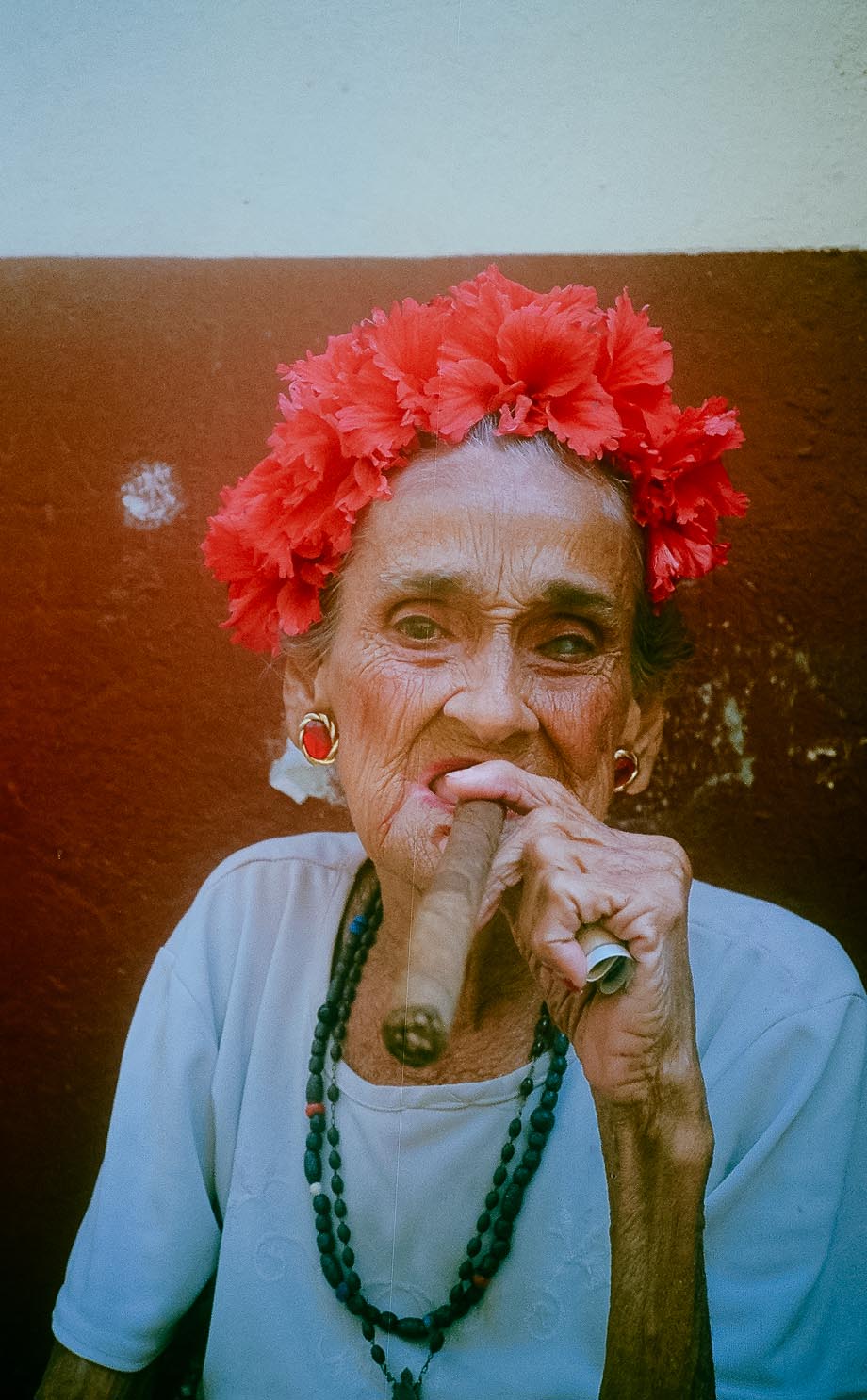
Can you tell me more about your trip there?
I stayed there for two weeks. The people were amazing. I didn't know a word of Spanish. I just remember listening to podcasts on the plane on the way there, trying to learn Spanish. But people think you need language to communicate but you need body language more than anything. You can say a lot by your body then you can with words, I think.
Body language. If they know that you're coming across and you're not trying to intend any problems, I don't know, it's weird. I do sometimes even myself look back at photos and think how the hell was I able to take this photo. When you're in that photographer mode and you know you want to get that shot, nothing can stop you. And then you get back to normal mode. I probably couldn't do it like on any day, I'd probably have to be abroad. I'd definitely have to be alone to do it because I feel like if I'm with a friend, I am the person that's with the friend. But if I'm alone, then I’m open to anything. All the barriers are stripped away when you're alone. You can be whoever you want to be. When you're around people, you're that person to them. So I went to Morocco with a close friend of mine and I got some amazing shots, but that taught me that the work would have been different if I was alone.
How was Morocco?
We did the most out of Morocco. We landed in Marrakesh and then we travel to the capital, Rabat. From Rabat, we went to Fez. And from Fez, we went to Chefchaoune and we only spent 24 hours there. But I got so much content from there in 24 hours. I even lost my wallet in Chefchaouen. But I was there for 24 hours and I didn't let it phase me. I would definitely want to go back but not yet. I think I also want to do like a 10-year-anniversary. I want to go back to Cuba, but I'm waiting maybe like after 10 years to go back. I don't want to go back too soon. But then maybe after 10 years, it will have totally changed. But I think that's part of the comparison process.

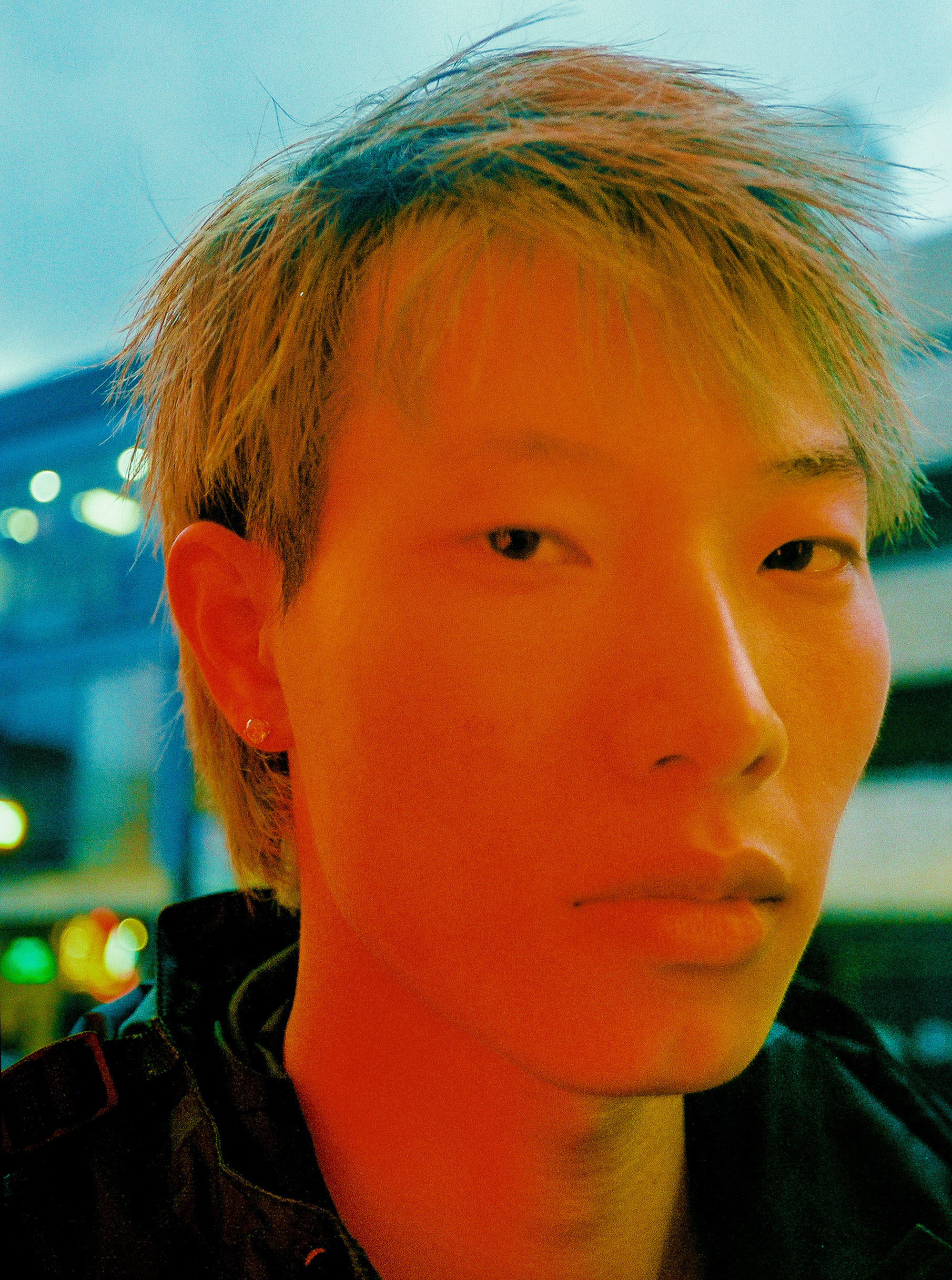
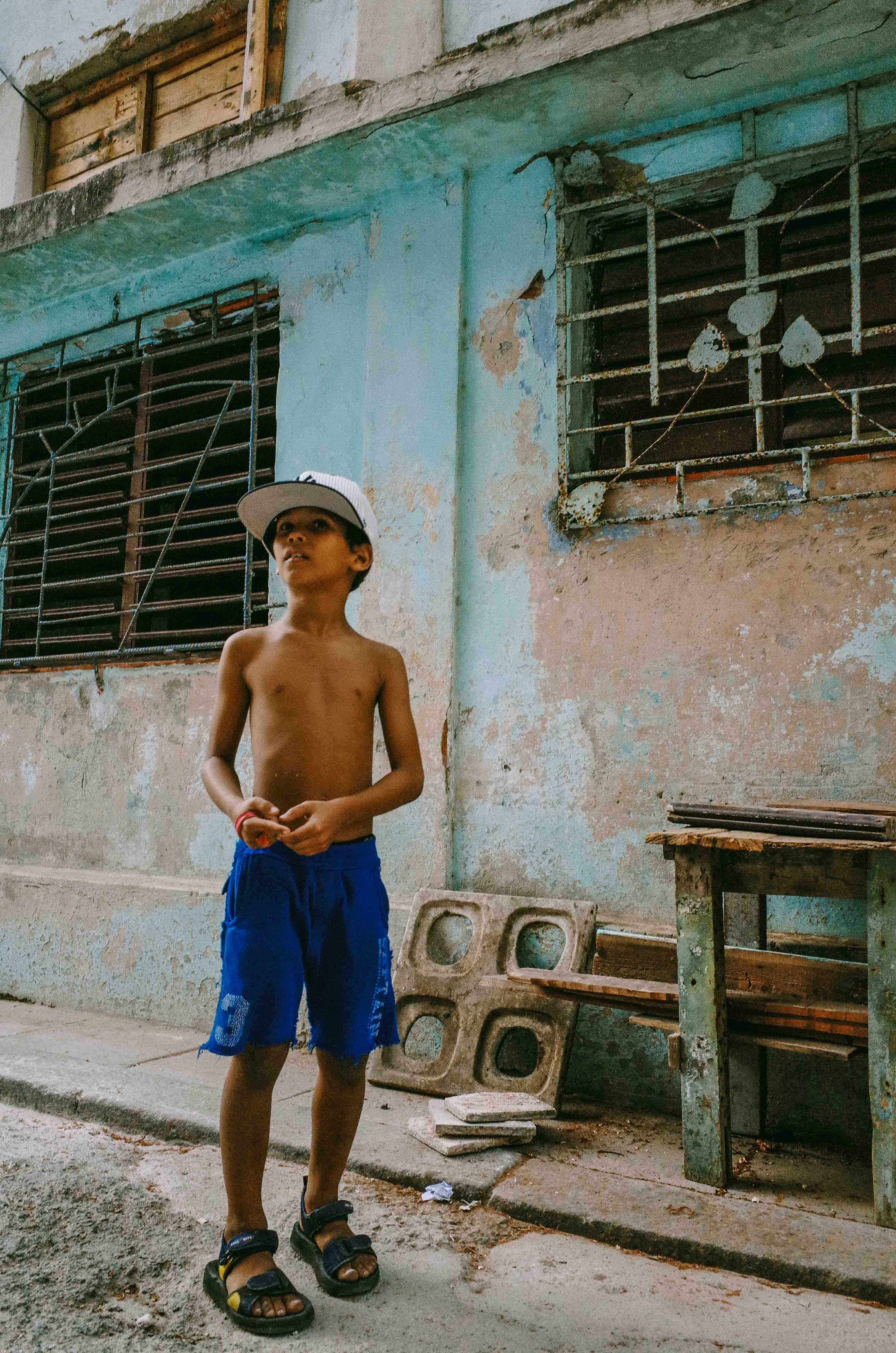
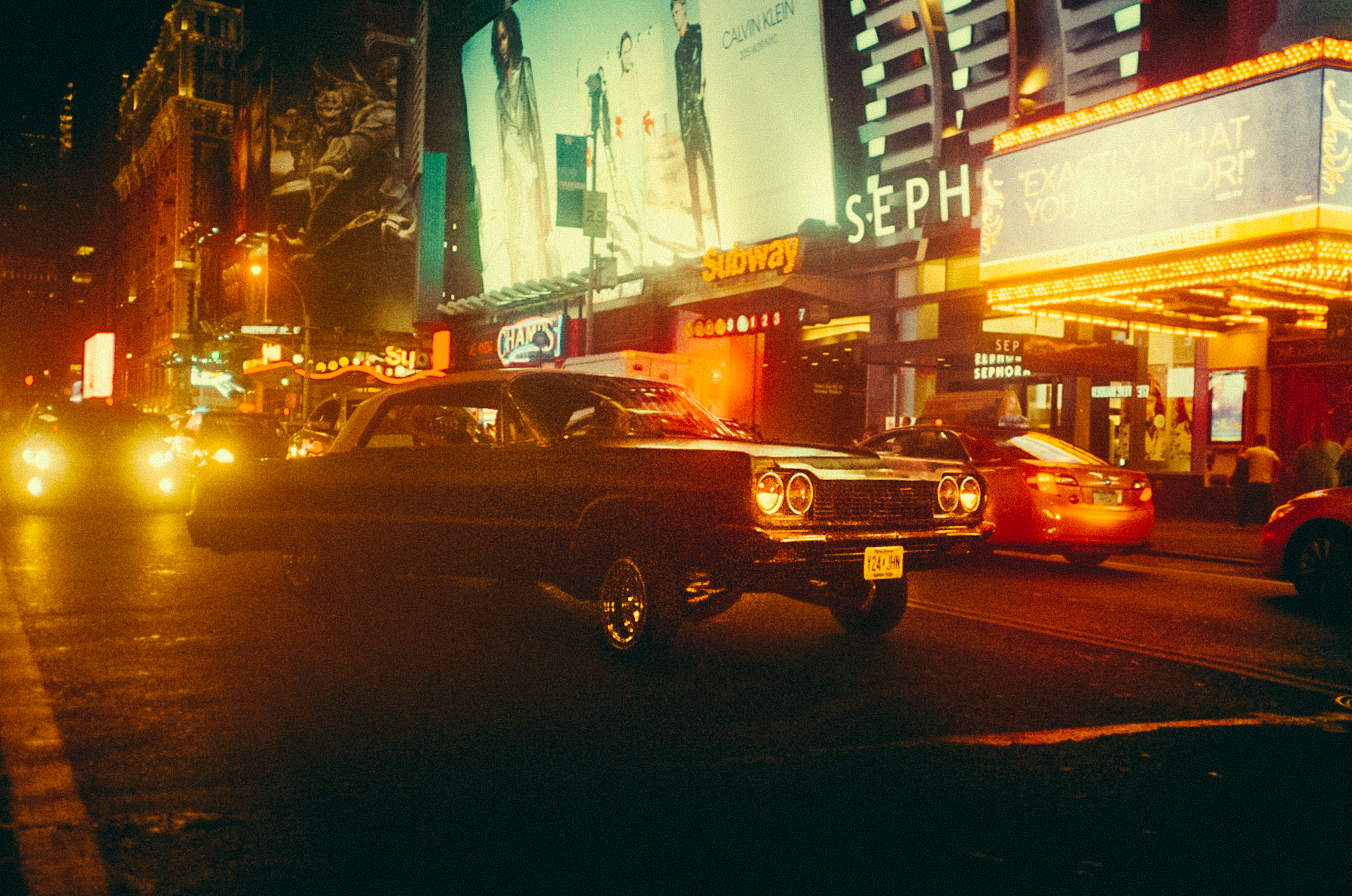
Are you going to make more books out of any other trips?
I'm working on a zine but I don't know what I want it to be. But I know that I definitely want to do something small or an exhibition soon, a solo exhibition. But I need someone to fund it.
What inspires your creativity?
I don't want to sound fake but honestly I'd just like to travel. I don't really plan a project before I go somewhere. It's when I get there and explore the place for what it is and whatever I capture through my moments and experiences, I'll make a project out of that. So I have to go through it in order to know what I'm creating.
But if you're pursuing a personal project at home?
I'd definitely have to be alone. I can't be inspired around people, sometimes I can. But when I'm with friends or with family, I'm switched off, switched off from the outside or the creative world. I just like to give all my attention to whoever I'm around with. But if I'm alone, it's mainly when I'm driving. I do spend a lot of time behind the wheel. That’s how I decided to go to Sudan.
Can you tell me about your trip there?
April 2017. So I'm Yemeni and Eritrean. I wanted to visit Eritrea so bad but there was a lot of conflict there. Sudan was the right place because they still hold the same cultural traditions, Ethiopia also, very close to Eritrea's culture but Sudan is like Arab. So I wanted to visit somewhere that's Arab and still maintains the same culture as my country. I was there three weeks.
It was amazing. I wouldn't go back yet but for how long I went for, it was more than enough. I experienced a lot. People are so friendly out there. And you get to understand what the meaning of life is, if that makes sense. People just don't really bother with what's going on. Nobody cares about anything apart from just living happy and eating healthy and maintaining their health. The simple things in life are all that matters, which I think is the most important thing anyway, to lead a healthy and happy lifestyle. It was a very refreshing travel experience. I went with my Mom but every time I went and took photos, I did go alone. I had the moment with my Mom, where you do Mom stuff, go to restaurants and that kind of thing but whenever I took photos I was always alone.
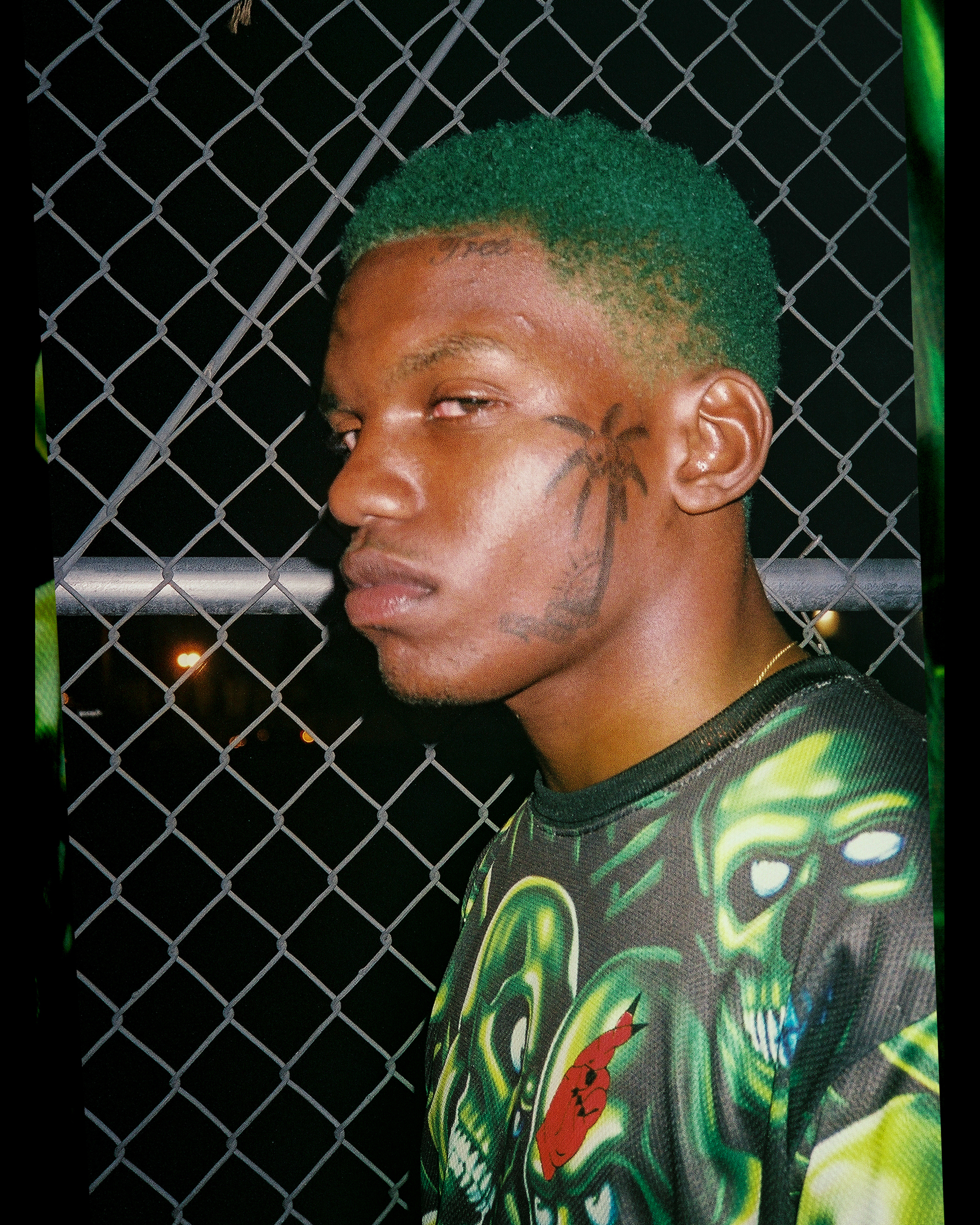
Did you take photos of your Mom?
I do, I have a handful but I don't tell her to pose or anything like that. I do take loads of photos of my Mom but more of my little brother. He's eight. I just want him to have the same sort of memories that I have of my Dad taking photos of me. My Dad's not as energetic as he was taking photos of me when I was younger, so I feel like I hold that responsibility of capturing these memories and moments of him growing up.
So what's next for you?
I want to buy a low rider. Sorry, it’s like a crime in the low riding world to buy because you have to build it. But I want to take the quick route and buy one. I also want to travel at least to four, five countries in each continents.
Any continents you haven’t seen yet?
Oceania, I haven’t been there. But I do have some travel plans with another photographer. We're thinking of going Jamaica. And I do have a friend of mine, the same friend who I went to Morocco with, we want to go to Tokyo. I don't like to plan too much because planning is good, for a planner. I'm spontaneous. Like when I went to America, I didn't expect to go seven weeks. I just booked a one way ticket.
Where does this love for travelling come from?
Just being from Nottingham, it's such a small city. You can get to every corner of the city within an hour, like every. I don't know. It's like the perfect size but just being from Nottingham, it just always made me curious to see what's out there, especially movies as well. I do watch a lot of movies and it just makes me want to go to a lot of places. The LA hood films like 'Boyz n the Hood' and 'Menace II Society' that inspired me to go LA so much. I've always wanted to go LA for those those movies. Some iconic scenes in that movie also. I just liked to go and relive it. I'm in that spot and it just surreal feeling. I remember watching those movies as a young kid and I feel like I've accomplished something. Even Cuba, I watched a movie called "7 days in Havana" before going. It really inspired me to go.
How should we finish this conversation?
I don't know, my mind is blank right now. But I do want to say be patient to everyone. I feel like people rush everything and people are just too worried and too stressed out about so many things. And patience is the number one thing that keeps me so calm and like it just keeps me grounded.
Interview by NOUR HASSAINE
Edited by BENJI REEVES
